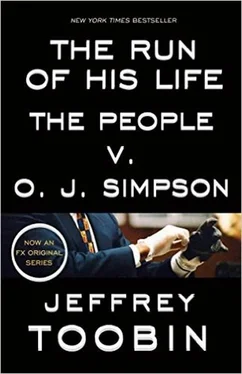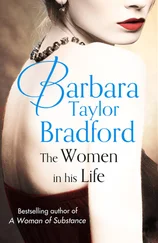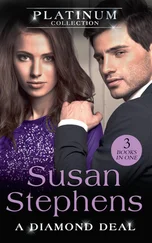But in the days to come, as Cochran continued to listen to Simpson’s entreaties, the lawyer learned that the defendant had no interest in pleading guilty. He wanted to go to trial and win-and he wanted Cochran to represent him. Cochran was torn. He enjoyed the broadcasting work; it was easy, flattering, low-stress, and, at several hundred dollars per appearance on Today , the money wasn’t bad, either. But how could he turn down what was shaping up to be the trial of the century? Unlike Shapiro, Cochran’s métier was trying cases, working before juries in a courtroom. Questioning Cochran on the June 20 edition of the Today show, Bryant Gumbel made note of the differences in the two men’s reputations. “Mr. Shapiro has a great reputation as a plea bargainer,” Gumbel said. “Do you think him the best man to represent O.J. in a criminal trial?” Cochran’s response was a study in condescension toward Shapiro-and nothing less than an advertisement for himself.
“Well, again,” Cochran told Gumbel, “I think there are lawyers and there are lawyers. He is a fine lawyer, but if the matter is to be tried, I think one needs one who is very well experienced and skilled in trying cases-a litigator, if you will. And I would not be surprised if you didn’t see a lawyer-another lawyer, trial lawyer-come in and do that.” Cochran, of course, did not let on that he was in fact at that very moment weighing whether to step in and take that trial lawyer role.
After the preliminary hearing ended on July 8 and Simpson was ordered to stand trial in sixty days, Cochran knew he had to make up his mind. He had a large circle of friends, and often liked to talk himself into (or out of) ideas by bouncing them off others. Cochran worked the phones.
One afternoon in mid-July, the phone rang in the office of a lawyer who also knew the stresses of high-profile cases. “ You should do it,” Cochran teased the lawyer, but he was really turning his own possible role over in his mind. The upside wasn’t difficult to recognize. Any trial lawyer would relish the chance to perform in front of the biggest audience in American legal history. The downside, as Cochran explained it, was more complex. Simpson was a peer. “He’s a friend,” Cochran said, “and that’s a mess when you start trying to represent a friend.” Cochran wondered whether their relationship might hinder his ability to conduct the case the way he wanted. The last problem was in many ways the simplest, but also the most profound. Cochran’s relationship with this friend was such that he could speak in a shorthand they would both understand. He hesitated for a while before he came out and said what was on his mind. If Johnnie Cochran’s career had established anything at that point, it was that he liked to win. But he had talked to his prospective client and sized up the evidence against him. Ultimately, Cochran’s problem with the Simpson case was a simple one.
“The case,” said Cochran, “is a loser.”

Of course they knew.
Of course Robert Shapiro and Johnnie Cochran knew from the start what any reasonably attentive student of the murders of Nicole Brown Simpson and Ronald Lyle Goldman could see: that O.J. Simpson was guilty of killing them. Their dilemma, then, was the oldest, as well as the most common, quandary of the criminal defense attorney: what to do about a guilty client.
The answer, they decided, was race. Because of the overwhelming evidence of Simpson’s guilt, his lawyers could not undertake a defense aimed at proving his innocence-one that sought to establish, say, that some other person had committed the murders. Instead, in an astonishing act of legal bravado, they sought to create for the client-a man they believed to be a killer-the mantle of victimhood. Almost from the day of Simpson’s arrest, his lawyers sought to invent a separate narrative, an alternative reality, for the events of June 12, 1994. This fictional version was both elegant and dramatic. It posited that Simpson was the victim of a wide-ranging conspiracy of racist law enforcement officials who had fabricated and planted evidence in order to frame him for a crime he did not commit. It was also, of course, an obscene parody of an authentic civil rights struggle, for this one pitted a guilty “victim” against innocent “perpetrators.”
These conclusions are the result of more than two years of reporting on the Simpson case. The week after the murders, I was assigned to cover the story for The New Yorker magazine. In addition to attending Simpson’s trial in Los Angeles Superior Court, I interviewed more than two hundred people, many of them repeatedly. I have had access to the full documentary record of the case-including internal memoranda of both the prosecution and the defense teams; advice provided by jury consultants to both the prosecution and the defense; the police “murder book,” with its summaries of all LAPD interviews with witnesses; the written summaries of all witness interviews by members of the defense team; heretofore secret grand-jury testimony; and depositions from the pending civil case against Simpson. I have also reviewed the enormous coverage of the case in the news media, an especially important task in the context of this case. The participants in the Simpson case worked obsessively to influence press coverage. These efforts to shape the news-some successful, some not-had important and lasting consequences from the night of the murders to the morning of the verdict.
Indeed, the heart of the defense strategy featured an effort at public storytelling, the creation of a counternarrative based on the idea of a police conspiracy to frame Simpson. For this effort, the defense needed a receptive audience, which it most definitely had in the African-Americans who dominated the jury pool in downtown Los Angeles. The defense strategy played to experiences that were anything but fictional-above all, the decades of racism in and by the Los Angeles Police Department. The defense sought to identify the Simpson case as the latest in a series of racial abuses by the LAPD, which featured such celebrated outrages as the Rodney King case and thousands of other insults and affronts great and small. This legacy of black distrust of the LAPD was the fertile soil in which the Simpson defense strategy grew. As the events of the case unfolded, the LAPD more than lived up to its reputation as one of the worst big-city police departments in the United States, one that tolerated sloth, incompetence, and racism. As it happened, though, bad as the LAPD was, it did not frame O.J. Simpson; no one planted or fabricated any evidence. In fact, the defense cleverly obscured the one actual police conspiracy that was revealed over the course of the case-that of the starstruck cops who in 1989 tried to minimize and excuse O.J. Simpson’s history of domestic violence.
It is ultimately unknowable whether a brilliant effort by prosecutors in the Simpson case could have produced a conviction in spite of the defense effort to make the case a racial referendum. There was, alas, no such splendid performance. Indeed, despite the best intentions, the case was largely botched by the Los Angeles District Attorney’s Office. The prosecutors were undone by the twin afflictions most common among government lawyers: arrogance (mostly Marcia Clark’s) and ineptitude (largely Christopher Darden’s). Drunk on virtue, the prosecutors squandered what little chance they had for victory.
At its core, the Simpson case was a horrific yet routine domestic-violence homicide. It metastasized into a national drama, one that exposed deep fissures in American society, for one reason: because the defendant’s lawyers thought that using race would help their client win an acquittal. It did. That was all that mattered to them. More than a decade ago, Alan Dershowitz, one of Simpson’s lawyers, gave a candid précis of the approach that would characterize the defense team’s efforts. In his book The Best Defense , Dershowitz wrote, “Once I decide to take a case, I have only one agenda: I want to win. I will try, by every fair and legal means, to get my client off-without regard to the consequences.”
Читать дальше













